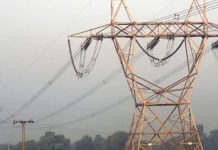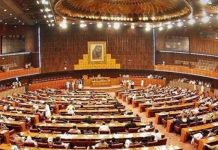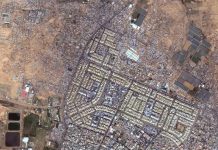The novel coronavirus pandemic has given the education fraternity many challenges yet much reprieve to look at the gaping challenges and shortcomings of the existing systems that foster equity and achievement gaps.
Globally, billions of learners were impacted by educational institutions’ sudden closures and cessation of learning activities.
The issues of public health, mental health issues, domestic violence, financial limitations, and greater impoverishment and poverty have come to the forefront and will continue to escalate if adequate measures are not taken.
The pandemic has forced the world to rethink what schools could be like and what leaders need to do to change things for the better.
For countries plagued with equitable access, economic stability and public health concerns, the stakes are higher. In Pakistan, the landscape is barren, with a nefarious agenda, lack of political will, continued economic instability, poor public health system, and weakening equity and gender parities.
It is, therefore, no surprise that the pandemic has laid bare the weakness of the education system. Both public and private educational systems in Pakistan have shown a lack of ability to respond adequately to the crisis and support teachers and students. Despite greater autonomy following the 18th amendment, the outcomes of educational planning and development, public health improvement and equity have been inconsistent throughout the country.

The academic attainment and achievement gap have increased due to the cessation in conventional schooling, yet national plans of facilitating recovery are absent. Schools are societies of tomorrow, yet schools have only been able to plan for the foreseeable, uninterrupted future in specific fixed contexts. As the nature of human interaction post-pandemic has changed, the typical settings of a classroom and school premises no longer provide the safety and security they once did.
The education leaders in Pakistan are now facing the gaping challenge of ensuring learners are back to schools in a safe and secure environment and can access education without any limitation. Yet, creating awareness and ensuring the people follow standard operating procedures (SOPs) to ensure safety and well-being has remained an insurmountable challenge.
From interactions to learning activities and scheduling of learning to assessment and reporting mechanisms, everything requires rethinking and reimagining to craft suitable – or desired – outcomes.
The educational governance must seek to transform as the previous models do not present successful academic achievement outcomes and holistic development of all learners. For schools to function in the post-pandemic Pakistan, the educational managers will have to step up and assume leadership and vision building to initiate change.
We propose an integration of holistic child development, teacher well-being and emergency health education with the school curriculum at all levels. From the behaviours seen during the last one year, Pakistani society seems uninformed on the potential risks of the pandemic on health and well-being of learners of all ages.
The curriculum and learning experiences should be designed to develop life skills that strengthen 21st-century skills.
Conversations on holistic growth and development should be incorporated in the lessons. Teachers’ mental health, workload and well-being should be a priority. Educational leaders should initiate the change, awareness and collective action on life skills, and the learners and society’s public health needs. We also argue that schools can no longer work in silos.
The schools need to facilitate open communication and collaboration with the families and members of the community.
Schools must create parents’ engagement and involvement in children’s development and share responsibility for nurturing healthy behaviours, creating hygienic, safe and secure living spaces, and healthy familial relationships.
Lastly, technology will continue to play a critical role in the agenda for change, and it will be up to the school leaders to adopt wise and thoughtful use of technology for education.
It is interesting to witness humanity’s resilience in the face of adversities again.
Though a credible vaccine is awaited to develop some immunity and combat the novel coronavirus, the world is ready to embark upon a post-pandemic realm with dreams and vision of changing the future.
Successful school leaders will be those who will focus on the comprehensive development of the human capacity for collaboration, problem-solving, and taking on challenges of the ever-changing world.
Azra Naseem, Associate Director Blended Learning Network at the Aga Khan University, is the co-author of this blog





























